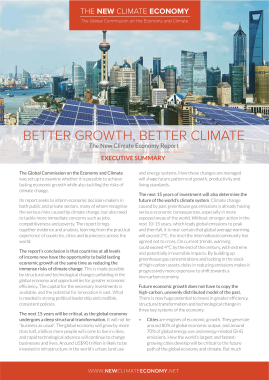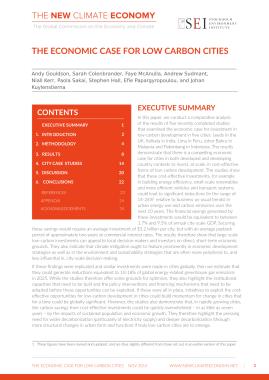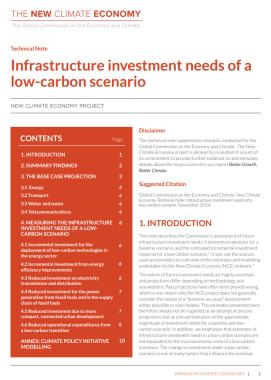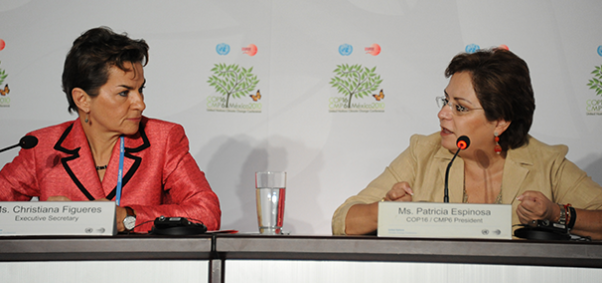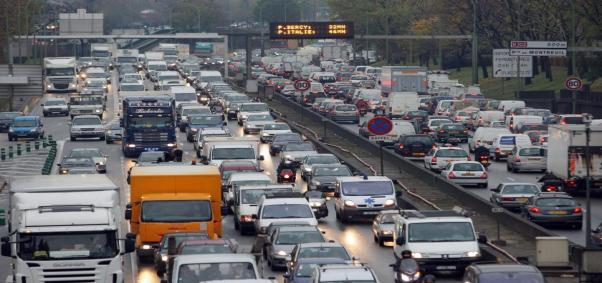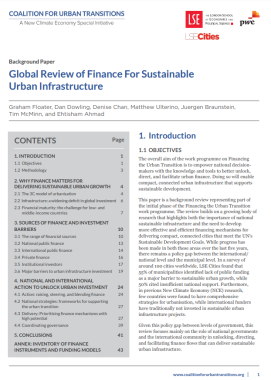
This paper is a background review representing part of the initial phase of the Financing the Urban Transition work programme. The review builds on a growing body of research that highlights both the importance of national sustainable infrastructure and the need to develop more effective and efficient financing mechanisms for delivering compact, connected cities that meet the UN’s Sustainable Development Goals. While progress has been made in both these areas over the last five years, there remains a policy gap between the international/national level and the municipal level.
Downloads
1.54 MB
![]() Global Review of Finance For Sustainable Urban Infrastructure
Global Review of Finance For Sustainable Urban Infrastructure

